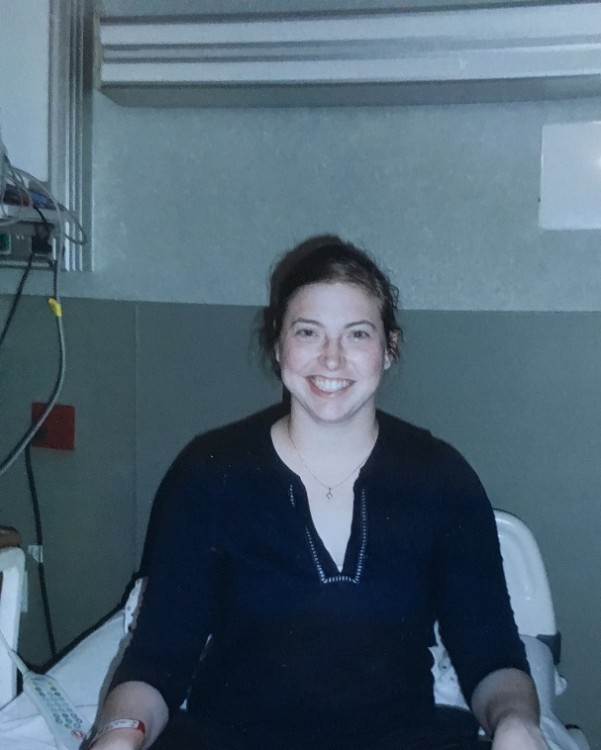To the Doctors Who Wouldn’t Say the Words ‘Ehlers-Danlos Syndrome’
The first time I heard the word “hypermobile,” I was inpatient in a specialty head pain unit at a hospital in Michigan. I was sitting in a group session lead by a physical therapist (PT) about how to care for your neck. She asked, “How many of you are hypermobile?” One woman about my age raised her hand. I didn’t. I didn’t know yet.
• What is Ehlers-Danlos Syndrome?
• What Are Common Ehlers-Danlos Syndrome Symptoms?
The next time, I was at a follow up PT appointment at the Michigan Headache and Neurological Institute (MHNI). The therapist ran me through a Beighton Scale (my first of many, before I knew what it was). She said, “You have moderate hypermobility.” She didn’t say the words “Ehlers-Danlos syndrome.” My local neurologist and PT agreed, but they didn’t say those words, either. One of them suggested I join a local support group. When I looked it up, I found it was a support group for a disease that as far as I knew, I didn’t have. A disease called Ehlers-Danlos syndrome.
Around that same time, I started seeing the pain management doctor at MHNI. He performed selective nerve root blocks and facet blocks on my neck. When I read his notes from my time in the hospital, I learned that I have cervical spondylosis and degeneration in my neck that contributes to my pain. The procedures were meant to dampen the neck pain, and hopefully reduce headaches as a result. He didn’t ever explain the new diagnoses to me — I learned about them by reading my own records.
Eventually, I started asking questions. Why was my neck falling to pieces in my 20s? Why was I hypermobile, and what did that mean beyond muscle strain in my neck? Did it have anything to do with the unrelenting joint pain, fatigue and myalgia I’m stuck with? Why was my heart rate and orthostatic blood pressure monitored so carefully in the hospital? Is this routine? Why was my heart rate higher than you would have liked? When I read about these things, something called Ehlers-Danlos syndrome comes up — is this something I need to worry about?

It was not until I started asking these direct questions that one of my doctors quietly nodded in response to that last one, the big one, and suggested I see a geneticist. Still, she did not say the words “Ehlers-Danlos syndrome.” She made me say them.
I want to make it clear that these are not bad doctors. They are excellent. Some of them are even considered to be world-class in their field. One of them later told me they watch for these things and they just didn’t want to scare me. Here is what I have to say to them in response:
To the doctors who didn’t say the words,
First, thank you for all that you do. I would be lost without you. Thank you also for saying the things you did, for hinting that I needed more, for making a referral, and for believing me before my diagnosis. I know that rare disease is hard to pinpoint. I know Ehlers-Danlos syndrome, and the conditions that frequently go along with it are not your area of expertise.
Still, there’s something you need to know. It’s scarier when you don’t say the words. When you tiptoe around them, people like me have to go it alone. We have to look elsewhere for information about what you didn’t say, and that can make us look like pain-in-the-ass patients. That is not who I want to be. I do not know it all.
Please, if you suspect rare disease or another difficult diagnosis, say it out loud. Take the journey with us. You don’t have to try and diagnose it, just be honest about what you think you’re seeing, make a referral, and be willing to learn as we do. I know you were trying to spare me, but I already knew there was something wrong, something systemic. I was already scared. In fact, I had moved past scared and toward acceptance. I’ve been on both sides of this. Other doctors have said words to me that ended up not sticking. That was easier to deal with, mostly because I knew what we were looking for, and how to learn about it with their guidance. When they turned out to be the wrong words, I moved on. No big deal.
Next time you have a situation like mine, please just say the words. Your patient will most likely be grateful.
Sincerely,
Sara
P.S. My advice to all the spoonies out there? Ask the questions. Make the appointments. Be brave, like you are!
Follow this journey on Zebra Writes.
